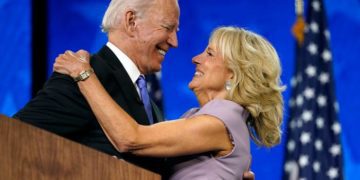[ad_1]
“Since Pompeo said his claims are supported by ‘enormous evidence,’ then he should present this so-called evidence to the world, and especially to the American public who he continually tries to fool,” the editorial said.
“The truth is that Pompeo does not have any evidence, and during Sunday’s interview, he was bluffing.”
CNN reached out to China’s foreign ministry for comment on Pompeo’s claims, but received no response. The country is in the middle of a five-day holiday that runs through Tuesday.
But critics allege Washington has ramped up efforts to blame China for the global spread of the virus as it faces growing criticism at home for its own handling of the pandemic. To date, the US has recorded more than 1.1 million cases and at least 67,000 Covid-19 related deaths.
Beijing has hit back with its own propaganda efforts, accusing the US of shifting blame and brushing aside accusations of a deliberate coverup in the critical early stages.
“They have only one objective: to try to shirk responsibility for their own epidemic and prevention and control measures and divert public attention,” he said.
On Monday, the Global Times editorial accused the White House of continuing to “engage in unprecedented propaganda warfare while trying to impede global efforts in fighting the Covid-19 pandemic.”
“As the US presidential election campaigns are underway, the Trump administration has implemented a strategy designed to divert attention from the incompetence it has displayed in fighting the pandemic. It is clear that their goal is to blame China for the pandemic by pinpointing the country as the source of Covid-19,” it said.
Origins of the virus
The coronavirus has infected more than 3.5 million people worldwide, with at least 247,000 dead. The US accounts for nearly a third of the global confirmed cases and more than one fourth of the deaths.
Pompeo’s remarks followed US President Donald Trump’s claims on Thursday that he had seen evidence that gave him a “high degree of confidence” the virus originated in a laboratory in Wuhan. Trump declined to provide details to back up his assertion.
Scientists in China and the West have pointed to research indicating that the virus is likely to have originated in bats and jumped to humans from an intermediate host — just like its cousin that caused the SARS epidemic in 2002 and 2003.
Asked Sunday about that conclusion, Pompeo said he has “no reason to disbelieve” the intelligence community, despite comments earlier in the same interview that “the best experts so far seem to think it was man-made. I have no reason to disbelieve that at this point.”
The ire of Beijing
So far, Chinese officials and state media have largely avoided directly naming Trump in its coverage of the spat. Instead, much of Beijing’s ire has been directed at Pompeo — and former White House chief strategist Steve Bannon, who does not hold any current position in the administration.
Last week, the state-run broadcaster CGTN accused Pompeo of turning “his back on humanity by spreading a political virus.” The Chinese Communist Party’s official mouthpiece, the People’s Daily, also said in an editorial that Pompeo’s rhetoric will deliver the US a “colossal moral deficit.”
On Monday, the Global Times said Pompeo was “indulging in a solo performance that has failed to adhere to the professional standards expected for a chief diplomat,” and accused him of losing “his moral compass.”




















